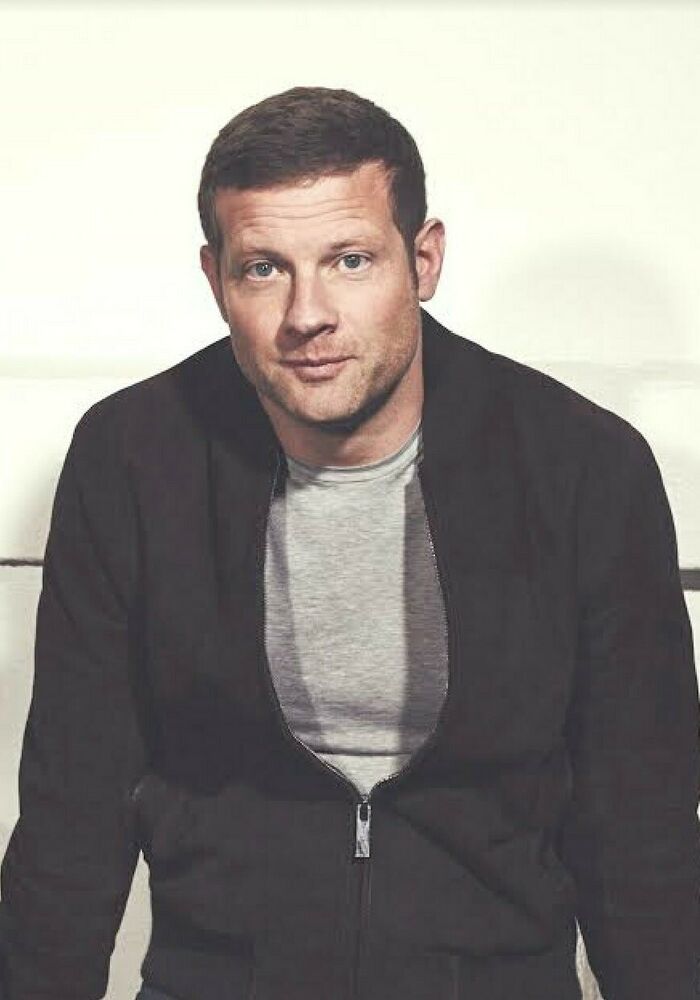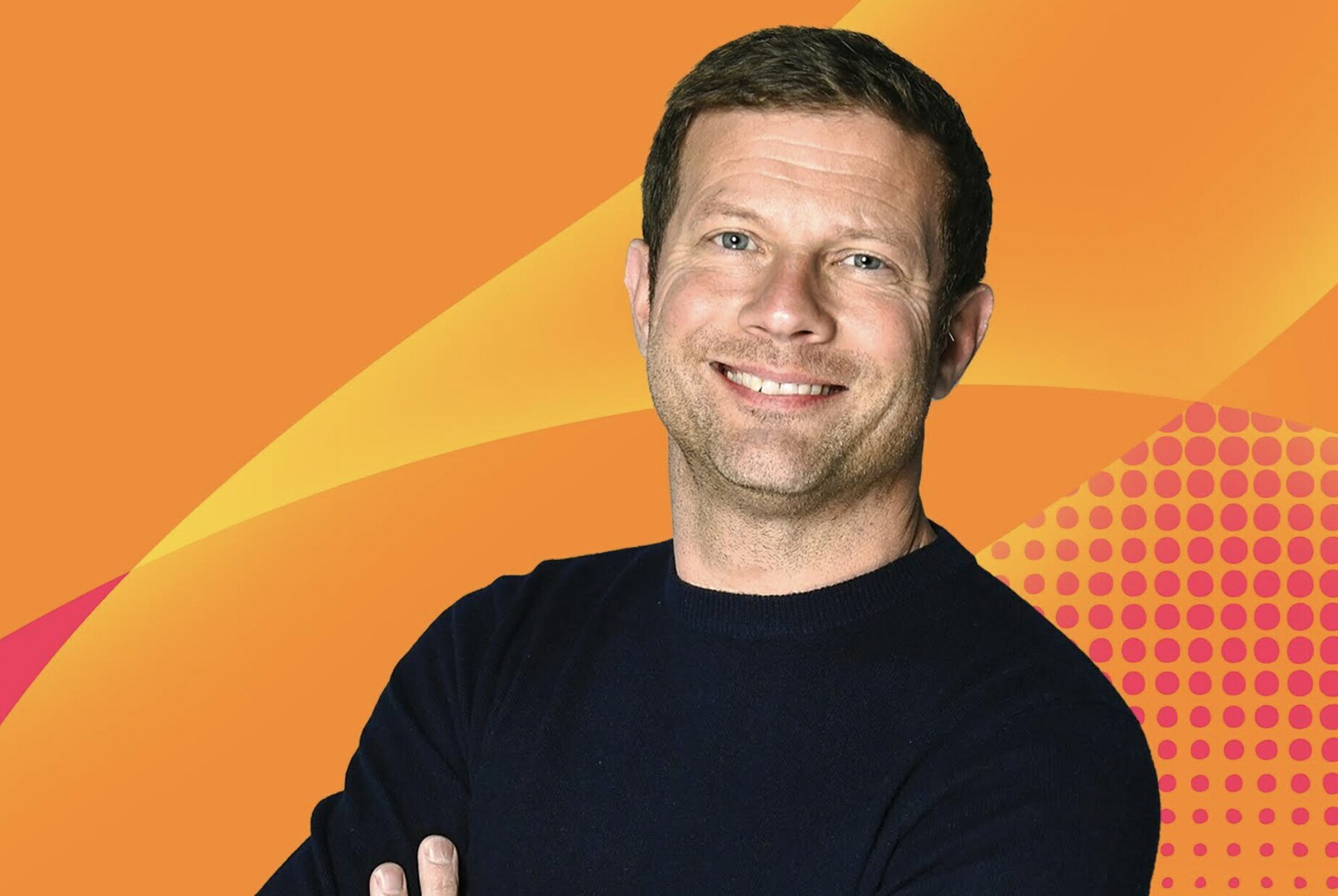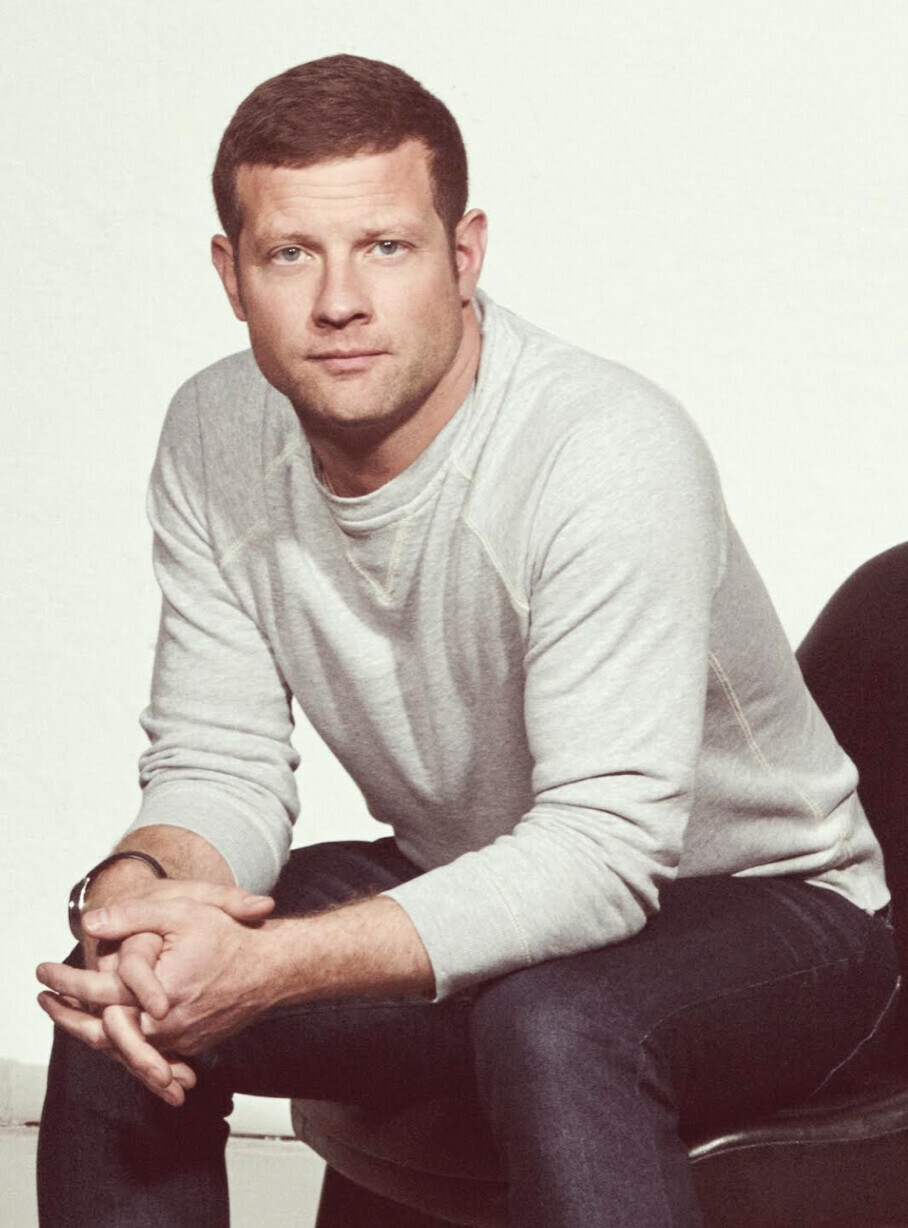“Sorry there isn’t anything interesting to look at,” he laughs, almost apologetically. “We’re renting a little house next to ours which we are doing up, and that’s quite stressful this close to Christmas. We don’t really have any rooms, but I’m just glad we have a roof over our heads!”
At times, the humble, chatty, and occasionally self-deprecating personality that emerges over the course of our conversation seems almost at odds with his standing as one of the most recognised and successful media figures in the UK this side of the millennium.
Indeed, few broadcasters can lay claim to the kind of 21st century pop culture ubiquity that O’Leary has achieved. Following a stint on Big Brother’s Little Brother during the reality show’s early ‘00s heyday, as well as a regular spot on the fledgling XFM (now Radio X), his time presenting The X Factor firmly cemented his place as one of the nation's most bankable presenters. Since 2004 he has also had his own Saturday show on BBC Radio 2 and, amongst many other high-profile gigs too numerous to mention, hosted The BRITs, Comic Relief, Children In Need, Sports Relief, the National TV Awards and This Morning.
Yet in spite of the vastly varied nature of his work over the past 20 years, music has always been the driving force in his career. In addition to his weekly radio show, he tells us he is consistently looking for new and exciting ways to tell stories from across the musical spectrum. His Reel Stories series on BBC2 has seen him conduct candid chats with the likes of Dave Grohl, Kylie, Noel Gallagher and Robbie Williams about the highs and lows of their careers, while his latest project, Radio 2 All Stars, which runs from December 26-29 on Radio 2 and the BBC Sounds app, finds O’Leary talking with some of the most iconic names in broadcast, as they share stories from their time in the business.
“I saw an ad for the Match Of The Day podcast,” he says, explaining how he came up with the idea for All Stars, “and I don’t listen to many sports podcasts, but it was this lovely warm fireside between Gary Lineker, Ian Wright and Alan Shearer just talking about their favourite strikers, and it hit me that we have all this amazing talent at Radio 2 and people who have had unbelievable careers and have all these amazing anecdotes about these musical legends, and we never hear them. You might hear about them in an autobiography or a story on the radio, but you never really sit down with these people and go ‘what was it like meeting John Lennon? What was the first gig you ever went to? What was the first Top Of The Pops like’? I thought we were missing a trick.
“The key, and I hope we’ve done it, is to make the show as informative and entertaining as possible, without it ever being too self-congratulatory. It’s about capturing some of these experiences. We forget – and the generation following us find it completely alien – that when we were growing up, these guys and girls on Radio 1 and Top Of The Pops were like rock stars.”
All of which begs the question, who are some of O’Leary’s personal All Stars?
“Well, on the broadcasting side for me there was Terry Wogan and Jonathan Ross, just because of how great they were. And then Chris Evans and Johnny Vaughan. You can’t forget how brilliant Johnny was on The Big Breakfast, he was such a master of his art.
“In terms of meeting artists, Springsteen and McCartney are hard to top. They are just incredibly magnanimous, giving, smart, wise… to spend time in their company was amazing. That’s as big as it gets for me. Then latterly, people like Dave Grohl. We did a Reel Stories with him, and Foo Fighters and Radio 2 go back so far, from when he was starting that band and coming out of the embers of Nirvana. There is a really meaningful relationship between Dave and Radio 2 that goes back a long way.
“One of the great things about working on The X Factor was that we’d put all the effort into the Saturday show because it was the big bells and whistles, entertainment spectacular, and then Sunday was almost like Top Of The Pops. You’d have a recap of what happened last night and then on the Sunday it’d be like, holy shit, Gaga is on tonight! Or Rihanna, Beyonce… it was extraordinary.”
Having settled into a comfortable role on Big Brother’s Little Brother, O’Leary says he was initially hesitant to make the leap across to The X Factor. However, it didn’t take too long to realise that snubbing the chance to front a bona fide TV phenomenon was never seriously an option.
“I was a producer on Little Brother and it was such an exciting time to work on Big Brother,” he recalls. “Then they offered me the transfer to the Premier League and there was all the pressure and everything that comes with that, but I knew I had to take it. And actually, it was not at all what I thought it was going to be. There was a lightness of touch there. I said I have someone who I write with – Ivor Baddiel, David Baddiel’s brother – so we’ll do the script together, and they were really cool about that. In the 11 or 12 years I was doing it no one ever told me to change anything, they trusted me and that really took the pressure off, knowing they had that faith in me.
“The first show, I remember, was a complete sensory overload,” he continues with a laugh. “Mrs O – Sharon Osborne – had two of her artists in the bottom two and she just threw her shoes off and shouted, ‘I’m off’! And I was like, ‘what? You can’t just leave’! But she refused to choose between the two. And there was a great quote afterwards where she told the producer, ‘you want reality, this is f***ing reality’, and slammed the door! So then you have to think on your feet. It was far less constructed than people give it credit for, especially the live shows. It was a lot of fun to do. And also, I know people can be quite sneery about it, but think about the amount of really good artists it has launched over the years. I think it’s done a good job.”





